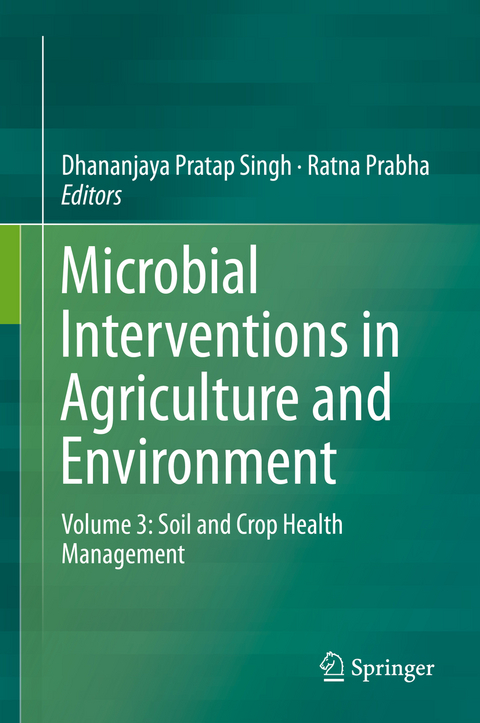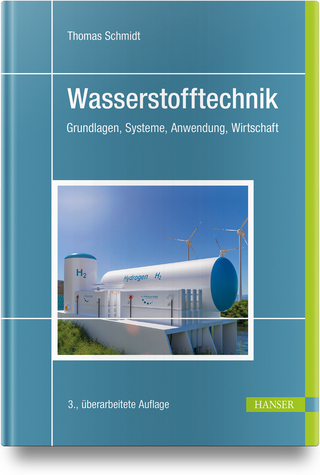
Microbial Interventions in Agriculture and Environment
Springer Verlag, Singapore
978-981-329-083-9 (ISBN)
This book compiles the latest research on the role of microbes in the rhizosphere and agro-ecology, covering interaction mechanisms, microbe-mediated crop production, plant and soil health management, food and nutrition, nutrient recycling, land reclamation, clean water systems, agro-waste management, biodegradation, bioremediation, biomass and bioenergy, sanitation and rural livelihood security. It is a comprehensive reference resource for agricultural activists, policymakers, environmentalists and advisors working for governments, non-governmental organizations and industries, helping them update their knowledge of this important, but often neglected, research area.
Dhananjaya Pratap Singh is a Principal Scientist in Biotechnology at ICAR-National Bureau of Agriculturally Important Microorganisms, Maunath Bhanjan, India. He holds a Masters' degree from G.B. Pant University of Agriculture & Technology, Pantnagar and Ph.D. in Biotechnology from Banaras Hindu University, Varanasi, India. His research interests include plant-microbe interactions, bioprospecting of microbial and plant metabolites, microbe-mediated stress mitigation in plants, metabolomics-driven search for small molecules and bioinformatics in microbial research. He has alsobeen working on the societal implications of microbial biotechnology for microbe-mediated crop production practices and rapid composting of residual agricultural wastes at the individual farm level to promote large-scale applications. He was involved in the development of the supercomputing infrastructure for agricultural bioinformatics in the microbial domain at ICAR-NBAIM under the ICAR’s National Agricultural Bioinformatics Grid (NABG) program in India. He is an Associate of the National Academy of Agricultural Sciences (NAAS), India and has received several prestigious awards, including the Dr. A. P. J. Abdul Kalam Award for Scientific Excellence. He has published more than 150 papers in respected national and international journals and has also edited six books on microbial research. Ratna Prabha is currently working as DST Scientist at ICAR-National Bureau of Agriculturally Important Microorganisms, India. With a Doctorate in Biotechnology and a Masters in Bioinformatics, she is actively involved in research in various fields, such as microbe-mediated stress management in plants, database development, comparative microbial analysis, phylogenomics and pangenome analysis, metagenomics data analysis, and microbe-mediated composting technology development and dissemination. She has particpated in developing various digital databases on plants and microbes, and has edited and authored a number of books and book chapters, and has published several research papers and review articles in respected international journals.
Chapter 1. Role of Microorganisms for Managing Climate Change Impacts.- Chapter 2. Microbial interventions in soil and plant health for improving crop efficiency.- Chapter 3. Fusariam wilts of chickpea, pigeonpea and lentil and their management.- Chapter 4. Application of Arbuscular Mycorrhizae in Soil Management.- Chapter 5. Plant Growth-Promoting Rhizobacteria (PGPRs): A Fruitful Resource.- Chapter 6. Microbes for Bioremediation of Heavy Metals.- Chapter 7. Plant growth promoting endophytic bacteria and their potential to improve agricultural crop yields.- Chapter 8. Importance and Utilization of Plant Beneficial Rhizobacteria in Agriculture.- Chapter 9. Potash Solubilizing Bacteria (KSB).- Chapter 10. Seed biopriming with potential microbial inoculants as sustainable options for stress management in crops.- Chapter 11. Cropping Systems Effect on Soil Biological Health and Sustainability.- Chapter 12. Influence Of Endophytic Bacteria On Growth Promotion And Protection Against Diseases in Associated Plants.- Chapter 13. Agricultural perspectives of Mycorrhizal glomalin as ‘soil fertility determinants’.- Chapter 14. Perspectives of Plant Growth Promoting Rhizobacteria in Conferring Salinity Tolerance in Crop.- Chapter 15. Microbe- Mediated Biotic and Abiotic Stress Tolerance in Crop Plants.- Chapter 16. Application of microbial products for enhancing the nutritional quality of agricultural produce.- Chapter 17. Microbial products: Protein, enzyme, secondary metabolites and chemicals.- Chapter 18. Microbial products and biotechnological applications thereof: proteins, enzymes, secondary metabolites & valuable chemicals.- Chapter 19. Systems and Synthetic biology approach to understand the importance of Pathogen- Host interaction.- Chapter 20. Microbes Mediated Nutrient Use Efficiency in Pulse Crops.- Chapter 21. Omics-data Integration in Microbial Research for Agricultural and Environmental Applications.
| Erscheinungsdatum | 10.12.2019 |
|---|---|
| Zusatzinfo | 29 Illustrations, color; 2 Illustrations, black and white; XI, 491 p. 31 illus., 29 illus. in color. |
| Verlagsort | Singapore |
| Sprache | englisch |
| Maße | 155 x 235 mm |
| Themenwelt | Naturwissenschaften ► Biologie ► Ökologie / Naturschutz |
| Weitere Fachgebiete ► Land- / Forstwirtschaft / Fischerei | |
| ISBN-10 | 981-329-083-8 / 9813290838 |
| ISBN-13 | 978-981-329-083-9 / 9789813290839 |
| Zustand | Neuware |
| Informationen gemäß Produktsicherheitsverordnung (GPSR) | |
| Haben Sie eine Frage zum Produkt? |
aus dem Bereich


